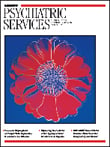Policy Challenges in Modern Health Care
Although the United States spends $1.6 trillion a year on health care, 46 million Americans lack health insurance, issues of race and class still result in significant disparities in health outcomes, and 100,000 lives could be saved each year if not for medical errors. Policy Challenges in Modern Health Care , a collection of 16 essays by recipients of the Robert Wood Johnson (RWJ) Foundation's Investigator Awards in Health Policy Research, includes a rich selection of articles that shed light on these and other complex issues. The authors discuss numerous changes within the health care system and in public health strategies, offering recommendations that focus on improving equity and quality of care and health in general.
The editors include articles written by researchers in public policy, health economics, sociology, and other fields as well as those by physicians, nurses, attorneys, and a former journalist turned public health researcher. Edited by David Mechanic, who directs the RWJ Investigator Program and has written extensively on health care policy, and Lynn Rogut, David Colby, and James Knickman of the RWJ Foundation, the book will be of particular interest to policy makers, health care administrators, public health officials, and advocates.
The book is divided into four sections and opens with a series of articles that set and explore the larger context of health care policy, with an emphasis on the cultural, moral, political, and economic forces that shape the system. In the second section, the authors address factors to reduce disparities in health care access and outcomes. The orientation in the U.S. toward changing individual behavior to improve health outcomes is challenged by compelling data that suggest the greatest advances are achieved by efforts to increase socioeconomic status and use public health approaches coupled with strategies aimed at individual risk factors. The two articles in the section that address gun control and the obesity epidemic are particularly noteworthy.
Quality in health care is the focus of the third section that explains why, despite the immense investment of resources in care, the system has still not adopted quality assurance mechanisms that could dramatically reduce medical errors and preventable deaths and injuries. The culture of the medical profession, the malpractice environment, insurance coverage limits, and a breakdown in coordination of care because of specialization are cited as major obstacles to ensuring high-quality care. The authors provide numerous recommendations for improving quality, including achieving standards for adequate nurse-to-patient ratios and computerized medical record keeping. The final section picks up on themes from the section on disparities and discusses specific approaches to increase fairness in access to care. The book's last article, which includes excellent case examples, describes a public planning process for developing limits on health care coverage that are acceptable to the majority.
In general, the articles in Policy Challenges in Modern Health Care are thought provoking, well researched and well written, and provide both valuable and viable suggestions for improving health and health care in this country. Given the diversity of subject matter, some articles will have more appeal than others, depending on the reader, but the book is a comprehensive collection that is a must read for health care policy makers.



